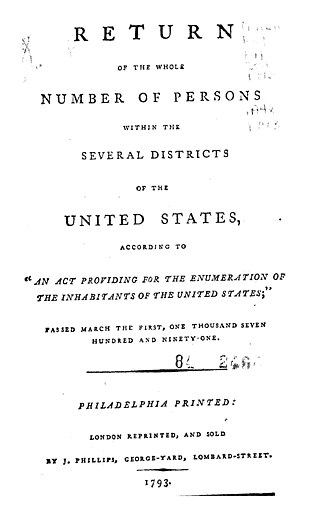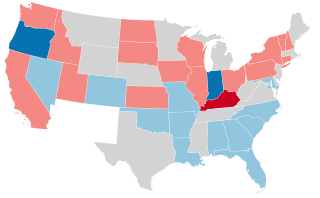
A list of American films released in 1908 .

A list of American films released in 1908 .

William Henry Moody was an American politician and jurist who held positions in all three branches of the Government of the United States. He represented parts of Essex County, Massachusetts in the United States House of Representatives from 1895 until 1902. He then served in the cabinet of President Theodore Roosevelt as Secretary of the Navy and Attorney General before Roosevelt appointed him to the United States Supreme Court in 1906. He retired from the Court for health reasons after a brief tenure of just less than four years. A progressive like Roosevelt, he opposed racial segregation and spoke out in favor of African-American civil rights.

The Biograph Company, also known as the American Mutoscope and Biograph Company, was a motion picture company founded in 1895 and active until 1916. It was the first company in the United States devoted entirely to film production and exhibition, and for two decades was one of the most prolific, releasing over 3000 short films and 12 feature films. During the height of silent film as a medium, Biograph was the most prominent U.S. film studio and one of the most respected and influential studios worldwide, only rivaled by Germany's UFA, Sweden's Svensk Filmindustri and France's Pathé. The company was home to pioneering director D. W. Griffith and such actors as Mary Pickford, Lillian Gish, and Lionel Barrymore.

Ben Hur is a 1907 American silent drama film set in ancient Rome, the first screen adaptation of Lew Wallace's popular 1880 novel Ben-Hur: A Tale of the Christ. Co-directed by Sidney Olcott and Frank Oakes Rose, this "photoplay" was produced by the Kalem Company of New York City, and its scenes, including the climactic chariot race, were filmed in the city's borough of Brooklyn.
The 1908 United States House of Representatives elections were held for the most part on November 3, 1908, with Oregon, Maine, and Vermont holding theirs early in either June or September. They coincided with the 1908 United States presidential election, which William Howard Taft won. Elections were held for all 391 seats of the United States House of Representatives, representing 46 states, to serve in the 61st United States Congress.
A wolverine is a stocky and muscular carnivorous mammal that resembles a small bear.

The 1790 United States census was the first United States census. It recorded the population of the whole United States as of Census Day, August 2, 1790, as mandated by Article 1, Section 2, of the Constitution and applicable laws. In the first census, the population of the United States was enumerated to be 3,929,214 inhabitants.

The 1908–09 United States Senate elections were held on various dates in various states. As these U.S. Senate elections were prior to the ratification of the Seventeenth Amendment in 1913, senators were primarily chosen by state legislatures. Senators were elected over a wide range of time throughout 1906 and 1907, and a seat may have been filled months late or remained vacant due to legislative deadlock. However, some states had already begun direct elections during this time. Oregon pioneered direct election and experimented with different measures over several years until it succeeded in 1907. Soon after, Nebraska followed suit and laid the foundation for other states to adopt measures reflecting the people's will. By 1912, as many as 29 states elected senators either as nominees of their party's primary or in conjunction with a general election.

Frank R. Reid was an American lawyer and politician who served six terms as a U.S. Representative from Illinois from 1923 to 1935.

The United States House of Representatives elections in California, 1908 was an election for California's delegation to the United States House of Representatives, which occurred as part of the general election of the House of Representatives on November 3, 1908. All eight districts remained Republican.
Georgia most commonly refers to:

The Call of the Wild is a 1908 American short silent Western film directed by D. W. Griffith and produced by the American Mutoscope and Biograph Company. The short, a "one-reeler", stars Charles Inslee, Harry Solter and Florence Lawrence. Its interior scenes were shot at Biograph's studio facilities in New York City, and its exteriors were filmed on location in Coytesville, today one of the oldest communities in Fort Lee, New Jersey.

The 1906–07 United States Senate elections were held on various dates in various states. As these U.S. Senate elections were prior to the ratification of the Seventeenth Amendment in 1913, senators were chosen by state legislatures. Senators were elected over a wide range of time throughout 1906 and 1907, and a seat may have been filled months late or remained vacant due to legislative deadlock. In these elections, terms were up for the senators in Class 2.

The 1908 United States elections elected the members of the 61st United States Congress, occurring during the Fourth Party System. Oklahoma joined the union during the 61st Congress. Despite the Panic of 1907, Republicans continued to control the presidency and both houses of Congress.

L'Ascension de la rosière, released in the United States as Honeymoon in a Balloon and in Britain as The Ascension of a Communicant, is a 1908 French short silent comedy film directed by Georges Méliès. The film is now considered lost.
La Toile d'araignée merveilleuse, released in the United States as Incident from Don Quixote and in Britain as Magic Armour, and also known as The Marvelous Cobweb and as Aventures de Don Quichotte, was a 1908 French short silent film directed by Georges Méliès, inspired by Miguel de Cervantes's Don Quixote.
The Living Doll was a 1908 French short silent Christmas film by Georges Méliès. The film, combining American ideas about Santa Claus with Méliès's fantasy style and a modern touch, followed the adventures of a young girl, Polly, one Christmas night, as she escapes kidnappers, travels to Santa's palace, and—by changing places with a large doll—goes with Santa on a giftgiving journey by airplane.
Pochardiana ou le Rêveur éveillé, known in English as A Rude Awakening and as The Duke's Good Joke, was a 1908 French short silent film by Georges Méliès.

Le Nouveau Seigneur du village, also known as On ne badine pas avec l'amour, and known in English as No Trifling With Love and as The New Lord of the Village, is a 1908 French silent trick film released by Georges Méliès, and supervised by an actor-director employee of Méliès's, known as Manuel.